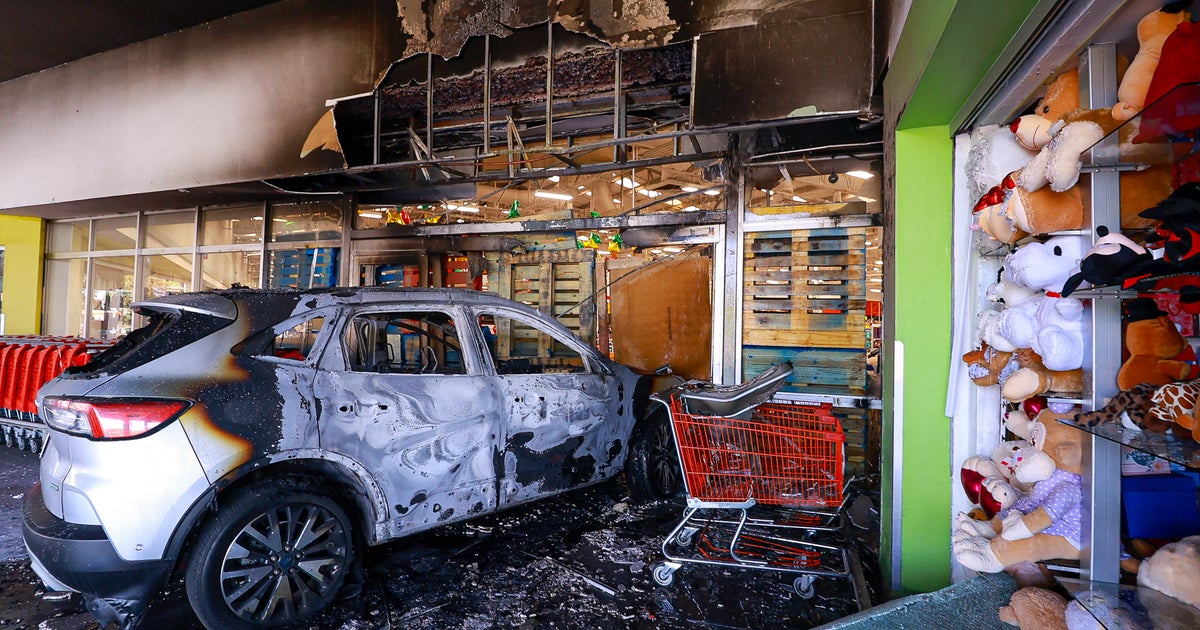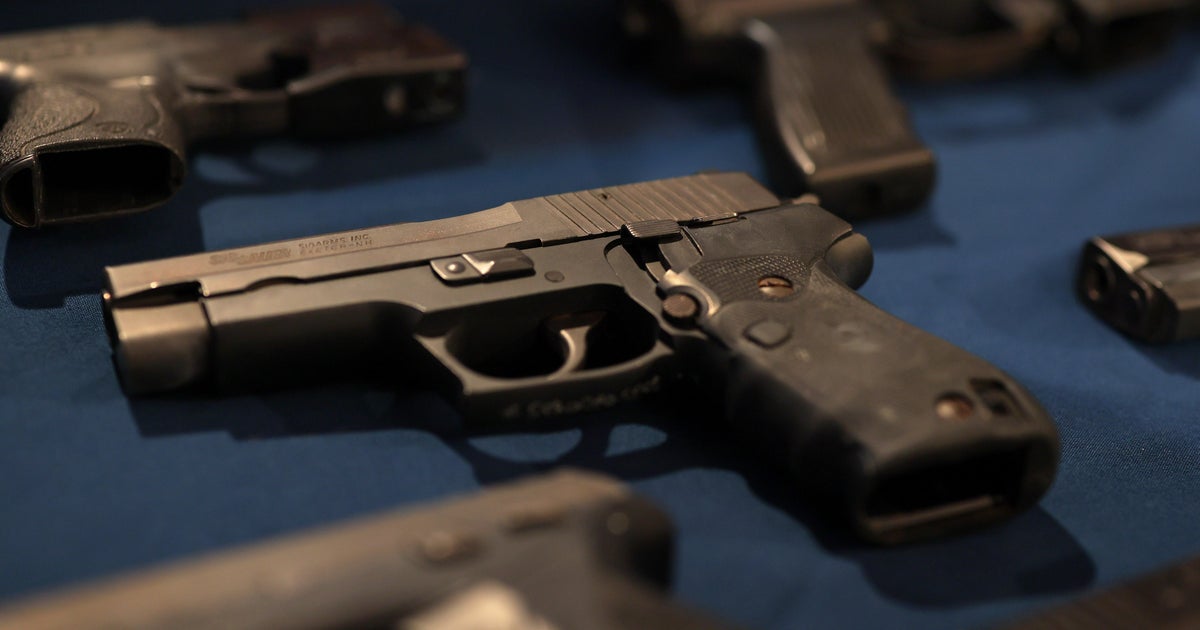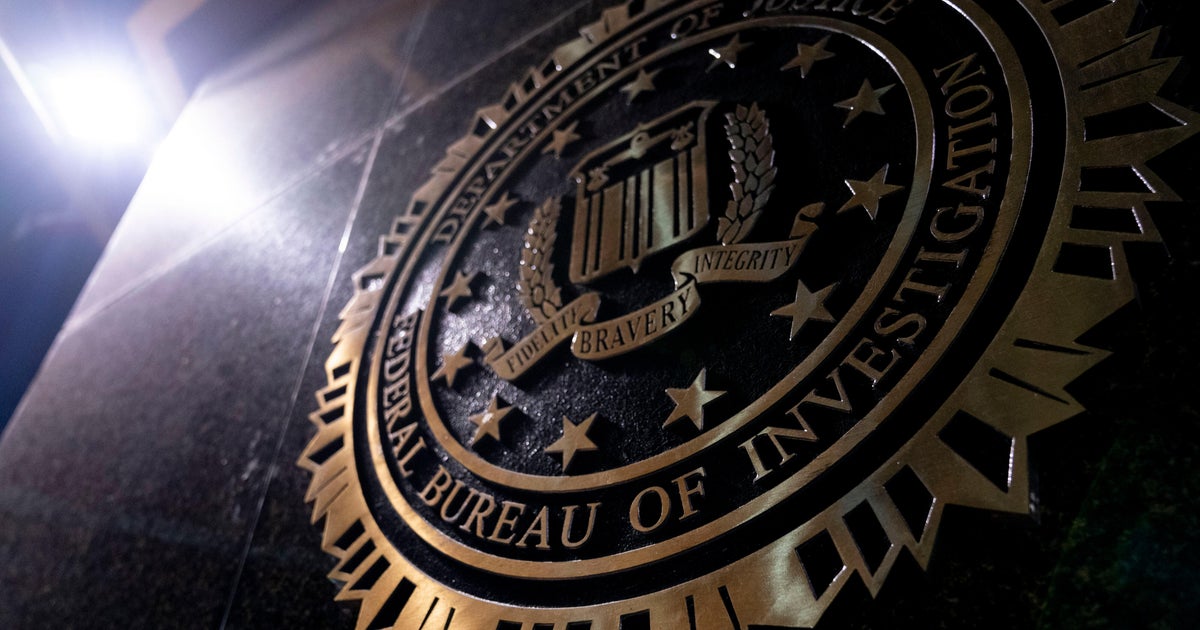DHS terror threat bulletin warns online forums are encouraging copycat Uvalde attacks
The Department of Homeland Security (DHS) issued a terror threat bulletin Tuesday warning that online forums harboring domestic violent extremist content and conspiracy theories have encouraged copycat attacks in the wake of the mass shooting at Robb Elementary School in Uvalde, Texas.
Analysts from DHS' Office of Intelligence & Analysis assess that these online platforms have also "seized on the event to attempt to spread disinformation and incite grievances, including claims it was a government-staged event meant to advance gun control measures."
As analysts probe recent tragedies in search of common factors or motives, researchers have uncovered a disturbing trend among gunmen of fatal mass shootings, nationwide.
Since 2018, six of the nine deadliest mass shootings in the United States have been carried out by gunmen 21 years of age or younger.
"With individuals who are younger in age, committing these attacks, we think — and this is something we're still looking at — access to content online is really fueling those personal grievances and often inaccurate misperceptions about current events," a senior homeland security official told reporters during a briefing this week. "It's really difficult for younger individuals to navigate the internet and understand what is considered to be credible information that they're consuming."
Among the conspiracy theories inspiring grievances is an unfounded notion of "great replacement" or "white genocide" that falsely claims, "minorities, multiculturalists, and a ruling elite are deliberately threatening the existence of the white race," according to the bulletin.
The "racist, anti-Black, and anti-Semitic" sentiment and longtime source of terror resurfaced in public dialogue after fueling a series of mass shootings, including the attack in Buffalo, New York, that killed 10 people at a supermarket in the city's predominantly Black east side.
The accused gunman posted online that shoppers he targeted came from a culture that sought to "ethnically replace my own people."
"The alleged 2019 attacker at a Walmart in El Paso, Texas cited similar grievances and inspiration for the attack, and both the Buffalo and El Paso attackers indicated they were inspired by the 2019 attacker of two mosques in Christchurch, New Zealand," DHS cautioned in its latest National Terrorism Advisory System (NTAS) bulletin, reiterating its concerns about ideological beliefs that prompt copycat attacks.
In 2018, a gunman who in an online screed had blamed Jewish people for allowing immigrant "invaders" into the United States shot and killed 11 worshipers at a synagogue in Pittsburgh.
"As recent acts of violence in communities across the country have so tragically demonstrated, the nation remains in a heightened threat environment, and we expect that environment will become more dynamic in the coming months," DHS Secretary Alejandro Mayorkas said in a statement. "The Department of Homeland Security remains steadfast in our commitment to provide timely information and resources to the American public and our partners across every level of government, in law enforcement, and in the private sector."
But the spike in online threats has left investigators and analysts with an obstacle: determining which posts to extremist-aligned internet forums present real threats, or in law enforcement terms, may be considered "specific and credible."
"The way the threat has manifested itself makes it difficult to determine what is really specific and credible," the DHS official said. "Many violent extremists often act alone using simple tactics. They radicalize to violence based on information they are often consuming via the internet."
The official continued, "They mobilize to violence based on their perceptions about emerging or current events, and when they do that, they give little to no warning. So, it makes it difficult for us to really understand to what extent someone is intent on committing these attacks."
Beyond the challenge of labeling calls to violence as "specific" or "credible," law enforcement officials are increasingly faced with another problem.
"We're seeing more kinds of actors," the DHS official said. "Different types of actors that have different personal or ideological grievances [are] respond[ing] to events that we haven't seen in the past."
Most recently, that has translated into individuals from across the ideological spectrum attempting to use the Dobbs v. Jackson Supreme Court majority draft opinion — which appeared to indicate the Supreme Court is set to overturn Roe v. Wade — to mobilize or encourage violence.
"[W]e're concerned that grievances related to restricting abortion access in general could fuel a broader response, not just from violent extremists who are pro-choice, but individuals that are motivated by racial or ethnic beliefs… [who have] worldviews on things like the 'white genocide' or other conspiracy theories associated with the superiority of the white race and how they could exploit this environment again to promote violence."
But the Supreme Court's looming decision isn't the only current event on the radar of homeland security officials. The NTAS advisory also concluded that calls for violence by domestic violent extremists "directed at democratic institutions, political candidates, party offices, election events, and election workers will likely increase," during midterm elections.
"The extent to which individuals may still hold grievances associated with the 2020 general election, or any continued misinformation or conspiracy theories that are promulgated around those midterm elections… people may feel like they need to commit acts of violence to respond to the to the election season or the outcome of those elections," the DHS official said. "So certainly, at least through the fall, we're keeping an eye on that."
The department warned that "foreign actors" could also seize on midterms "to sow discord and influence U.S. audiences in keeping with practices during previous election cycles."
The new bulletin expands on an NTAS bulletin released in February that was set to expire on Tuesday.
Amid the ongoing Russian invasion of Ukraine, analysts also registered that "Russia and other actors have also amplified conspiracy theories alleging U.S. responsibility for the Russia-Ukraine crisis and claiming U.S. support for bioweapons labs abroad. Some of these actors have used these conspiracy theories to justify calls for violence against U.S. officials and institutions."
The false and baseless claim that Ukraine was developing biological weapons with the help of the U.S. government labs began to gain steam on Twitter in the aftermath of the Russian invasion.
Tuesday's bulletin highlighted other foreign terrorist-linked efforts to amplify the New York City subway shooting in April 2022, whereby an individual wearing a gas mask threw two smoke canisters and opened fire a train platform at rush hour, resulting in injuries to dozens of individuals.
In 2022, DHS provided $250 million in funding to support non-profits at high risk of terrorist attack, including places of worship, harden physical security. Mayorkas has proposed raising grant allocations to $360 million total in fiscal year 2023. DHS also awarded 37 grants amounting to $20 million as part of its Targeted Violence and Terrorism Prevention (TVTP) Program in 2021, designed to assist local communities in combating extremist threats.
"Our focus is to empower the whole community, be it folks that are working in the school, the school administrators, the counselors, the faith leaders… to be engaged with these individuals," another senior DHS official noted when probed on how the federal government plans to mitigate the threat of future attacks. The official stressed that community members will be "the first ones that are going to potentially identify an individual that is going down a path of violence."
The Biden administration has issued more than 100 intelligence products related to domestic violent extremism, according to a senior DHS official, including six NTAS bulletins. The latest one is set to expire on Nov. 30, 2022.




